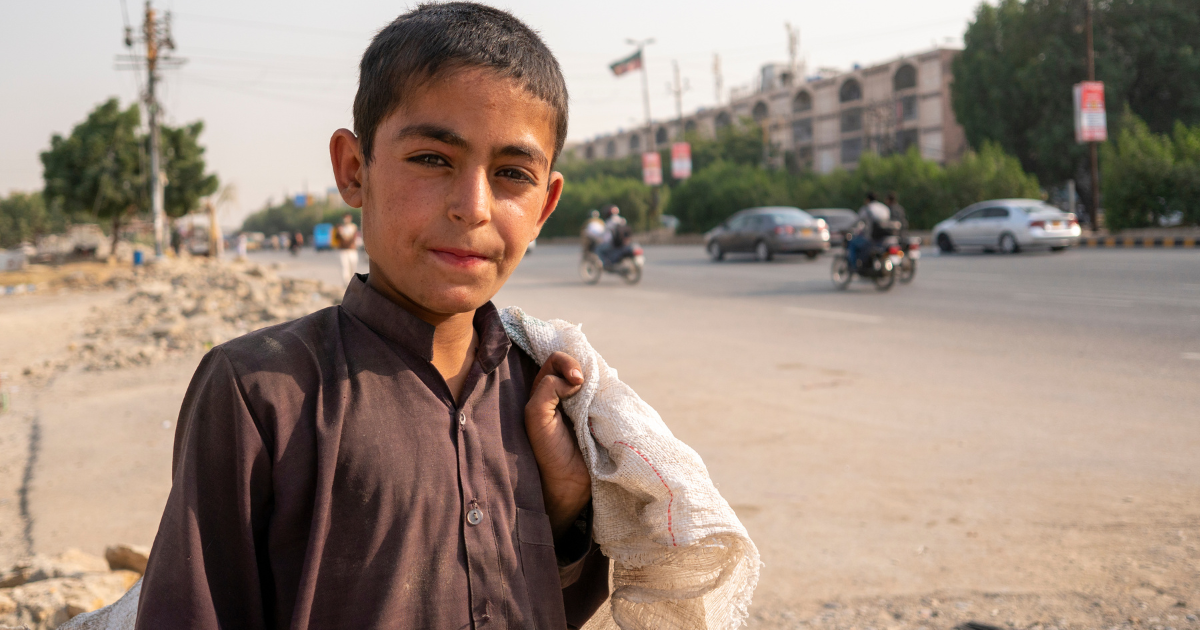Across the border, tensions quietly build. Reports of Pakistan deporting Afghan refugees circulate through the dusty streets of Kabul and echo in the crowded markets of Peshawar. Families who fled war and persecution in the past now confront an unclear fate, as their gentle havens in Pakistan are threatened by official declarations and stricter border controls.
As we witness worried faces and packed bags at the Pakistan-Afghanistan border, a pressing question arises: why are Afghan refugees being sent back after decades of hosting?
To grasp the essence of this complex matter, we need to move beyond the stark headlines and delve into the historical context, political realities, and human stories woven into this ongoing saga. Let’s untangle the reasons behind these deportations, exploring the difficulties, and concerns.
Pakistan’s Long-Standing History of Hosting Refugees
It is crucial to recognize Pakistan’s long-standing role as a refugee for Afghans escaping conflicts and persecution. Since the Soviet invasion in 1979, Pakistan has graciously hosted millions of Afghan refugees, earning the title of the world’s second-largest refugee-hosting nation. However, this generosity has come at a notable cost, straining infrastructure, resources, and social services.
Changing Dynamics and Evolving Policies
Over the years, the circumstances around the refugee situation have changed. While the initial surge was primarily due to conflict, elements such as economic hardships and environmental disasters have contributed to the refugee population. Furthermore, the political landscape in both Pakistan and Afghanistan has undergone significant transformations, shaping policies, and attitudes toward refugees.
Causes For Recent Deportation
- Security Issues
After many years of hosting millions of Afghan refugees, Pakistan has encountered significant security challenges. Issues have arisen regarding potential connections between some refugees and regional militant groups. While this doesn’t apply to every refugee, it has unfortunately resulted in the implementation of stricter policies.
- Economic Burden
Hosting a substantial refugee population puts immense pressure on Pakistan’s infrastructure and resources. Providing basic needs such as healthcare, sanitation, and education strains local economies, leading to calls for a homeward journey to ease the burden.
- Prolonged Status
The prolonged Afghan refugee crisis has created a sense of frustration among certain segments of Pakistani society. The seemingly unending arrival of refugees can cause tensions and resentment, contributing to calls for deportation.
- Verification and Enrollment Challenges
Effectively verifying the refugee status of individuals has been a significant challenge. Incomplete enrollment processes and permeable borders make it difficult to differentiate between genius refugees and undocumented migrants, further complicating policy implementation.
- Geopolitical Actualities
Pakistan’s refugee policy is intricately linked to its complex relationships between Pakistan and Afghanistan and International partners. Geopolitical considerations and external pressures can sometimes influence deportation decisions.
- Absence of Lasting Solutions
The international community’s struggle to find lasting solutions for Afghan refugees, either within Afghanistan or in third countries, leaves Pakistan in a difficult position. The absence of possible alternatives restricts options for resettlement and fosters uncertainty.
- Misconceptions and Prejudices
Unfortunately, negative prejudices and misconceptions about Afghan refugees can sometimes shape public opinion and impact policy decisions. Tackling these prejudices and promoting understanding is essential for navigating this complex matter.
- Internal Displacement Within Afghanistan
The current conflict within Afghanistan has led to significant internal displacement, increasingly blurring the lines between refugees and internally displaced persons. This complexity adds to the difficulty of crafting effective policies.
- Changing Domestic Politics
Domestic political shifts in Pakistan can likewise influence refugee policy. Changes in government and evolving public concerns can lead to adjustments in deportation procedures, highlighting the necessity for comprehensive, enduring solutions.
- The Human Cost
Ultimately, any conversation about refugee deportation must recognize the human cost involved. The act of separating families, disturbing livelihoods, and compromising safety are serious factors that need to be balanced carefully against concerns about security and economic strain.
Closing Up
Understanding the factors behind Afghan refugee deportations in Pakistan requires recognizing the complex interplay of security, economic, political, and humanitarian concerns. Rather than seeking simplistic answers, it’s crucial to engage in detailed discussions, address misconceptions, and prioritize lasting solutions that respect human rights and dignity.
Only by empathy, understanding, and collaborative efforts, we can tackle this complex challenge and move toward a future where everyone, regardless of origin, can live safely and securely.


